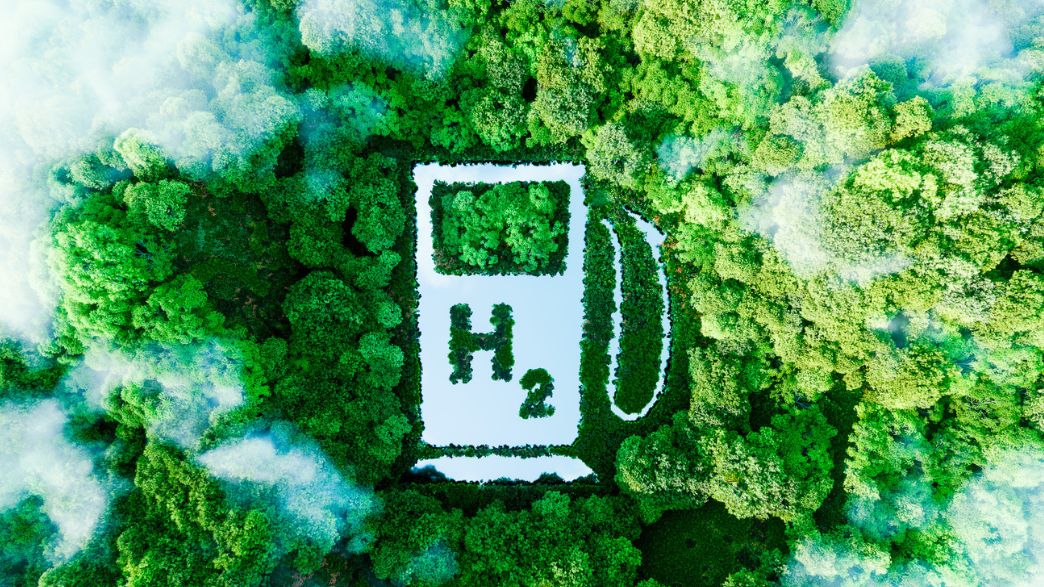Green hydrogen emerges as an important solution in the quest to decarbonize the Brazilian energy sector over the next ten years. The Ten Year Energy Expansion Plan, developed by the Energy Research Company (EPE) and the Ministry of Mines and Energy (MME), estimates that Brazil has a remaining technical production potential of approximately 1.8 Gt H2 per year, of which around 96% would come from renewable sources.
Although interest in hydrogen has increased in recent years, Brazil has been investing in research and development since 2002. The Ministry of Science, Technology and Innovation (MCTI) and the MME have included the potential of hydrogen and fuel cells in their strategic plans . In 2021, the CNPE approved Resolution nº 2/2021, establishing guidelines for research and innovation in the energy area, with priority for hydrogen. In 2022, Resolution nº 6/2022 created the National Hydrogen Program (PNH2), aiming to mobilize public and private sectors, academia and international partners to develop a competitive hydrogen market in the country.
Financing can come from public companies, such as BNDES and FINEP, and also from the private sector, capital markets and foreign investors. Projects involving hydrogen are already under development in states such as PE, RJ and CE, with plans to expand to BA, RN and ES. Fortescue Metals Group, for example, has plans to produce 50 million tons of green hydrogen globally by 2030, with specific interest in the Brazilian market.
Brazil has favorable natural conditions to become an important hydrogen producer, in addition to having a favorable business environment and efficient regulation in the energy sector. However, it is fundamental to establish policies that guarantee the country’s competitiveness and the creation of new opportunities, focusing on technological neutrality, international partnerships and structuring a competitive market.
Australia, like Brazil, has excellent conditions for the production of green hydrogen, due to its capacity to generate energy from renewable sources. The country has established international partnerships with Japan, South Korea and the European Union. Australia’s National Hydrogen Strategy aims to create a clean, innovative, safe and competitive industry by 2030, based on three main pillars: scaling up renewable energy, certification of hydrogen in Australia and supporting demand for hydrogen adoption.
With adequate investments and policies, green hydrogen can become an essential tool for the decarbonization of the Brazilian energy sector, contributing to the achievement of environmental goals and strengthening the national economy.
To harness the full potential of green hydrogen in Brazil, it is necessary to develop and improve infrastructure, as well as invest in human capital and advanced technologies. The country needs to prepare to meet the growing global demand for hydrogen, which can generate significant opportunities for growth and sustainable development. International cooperation plays a key role in this context, with Brazil establishing strategic partnerships to share knowledge, experiences and resources.
Initiatives involving green hydrogen in Brazil should address several application areas, such as transportation, power generation and industry. Hydrogen can be used in fuel cells for vehicles, generators and energy storage systems, as well as in the production of fertilizers, chemicals and steel. This versatility allows hydrogen to contribute to the reduction of greenhouse gas emissions in various sectors.
In addition, the development of green hydrogen in Brazil can boost job creation and stimulate innovation in the energy sector. The country could become an important supplier of hydrogen and associated technologies, both for the domestic market and for export. This leadership position would bring significant economic and social benefits, in addition to strengthening Brazil’s commitment to sustainability and energy transition.
In summary, green hydrogen has the potential to become a viable and sustainable alternative in the Brazilian energy sector, contributing to decarbonization and generating economic and environmental benefits. Investments in research, development and infrastructure, together with effective public policies and international partnerships, are key to ensuring that Brazil becomes a global leader in the production and use of green hydrogen.
Source: CEBRI

Comment